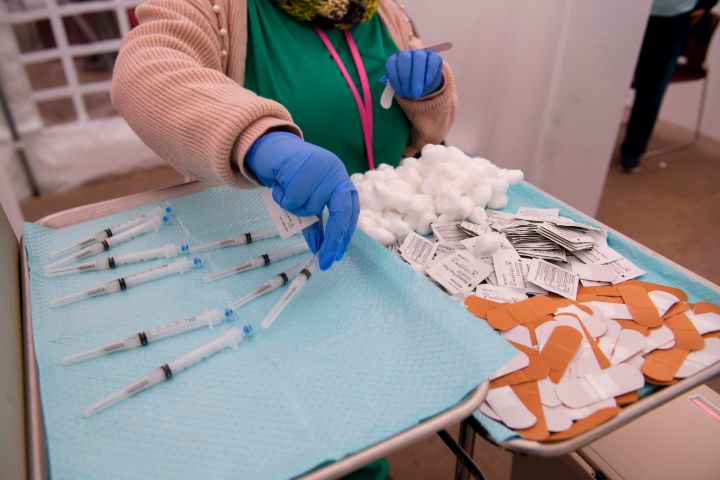
How vaccination is going in Appalachia
The “Marketplace Morning Report” has been keeping tabs on arguably the biggest logistical operation in human history: COVID-19 vaccine distribution. Our latest check-in is with a nurse coordinating vaccine distribution in the Appalachian region of northeast Tennessee and southwest Virginia.
Jamie Swift is chief infection prevention officer at Ballad Health, a hospital and clinic group. She spoke with host David Brancaccio, and the following is an edited transcript of their conversation.
David Brancaccio: You have people 75 and older coming in now for their second booster shot. Tell me about a day in your life as you work to make that happen.
Jamie Swift: It really has been a team effort up here. We have, currently, what we’re calling community vaccination clinics. We have those set up not within our hospitals. They’re in different buildings and things that we have throughout the region. So, really just getting people in that appointment and getting them through their second dose. We know who came in for their first shot, they get an appointment to come in for their second shot, so the day and time they need to come back to that same location. And then we know if we’ve had people that haven’t shown up, and we will follow up with those individuals.
Brancaccio: It’s interesting you’ve got to do this across state lines — it does add some complexity.
Swift: Yeah, it is very different. They’re even in different phases. So Virginia is 65 and up; Tennessee is still 75 and up. Some are doing teachers, some are not. So it really is very different messaging. Even though we’re one organization, our sites are having to operate very differently as we follow the lead of the state health departments.
Brancaccio: So we, over here, don’t have enough vaccine, here in parts of the East. Our region is not alone in this. Do you have enough there?
Swift: We do not. The demand far outweighs the supply at this point. So you know, at this point, we’re honestly having to stand down our community vaccination clinics, until we get more vaccines. So we’re finishing the second doses, those come automatically. We just don’t have any more first doses to offer in those clinics. We are having to pull back on the community vaccination clinics in Tennessee. In Virginia, we’re still able to keep those two sites open.
Brancaccio: What about the trained people you need to pull all this off? Because this is going to be going on for a while.
Swift: It is. When we open these community vaccination clinics, we actually reached out to several of our retired nurses. We’ve hired them back to just come in and work a few hours each day and give vaccines. And that’s been a great partnership with some of those nurses who were more than willing to help, but had retired and moved on and not really working at the bedside anymore.
There’s a lot happening in the world. Through it all, Marketplace is here for you.
You rely on Marketplace to break down the world’s events and tell you how it affects you in a fact-based, approachable way. We rely on your financial support to keep making that possible.
Your donation today powers the independent journalism that you rely on. For just $5/month, you can help sustain Marketplace so we can keep reporting on the things that matter to you.


















